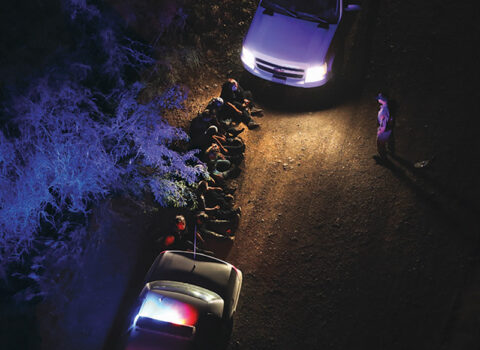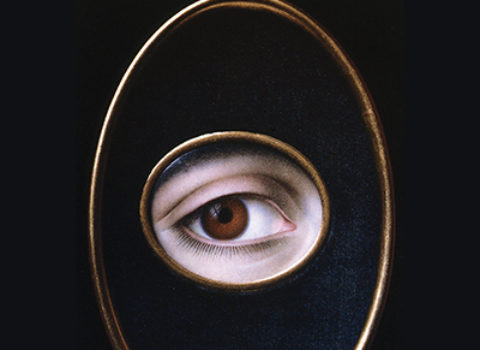A Sense of War
What does the war in Aleppo smell of? It smells of carbine, of wood smoke, of unwashed bodies, of rubbish rotting, of fear.
There is no end in sight for what seems to be a perpetual civil war in Syria, as the bombing of a maternity hospital in Aleppo this week made pointedly clear. Since the conflict began in 2011, more than 11 million people have been killed or driven from their homes. Though an estimated 13.5 million Syrians still living in the country are in need of humanitarian aide, indifferent world governments have done nothing to alleviate their suffering, merely supplying various factions with deadly weapons. The following is excerpted from The Morning They Came for Us, by Janine di Giovanni, a courageous reporter who has covered the recent conflicts in the Middle East, and before that the war in Bosnia. She wrote this dispatch from Aleppo in December 2012. The book is out from Liverlight, W. W. Norton this week.
War means endless waiting, endless boredom. There is no electricity, so no television. You can’t read. You can’t see friends. You grow depressed but there is no treatment for it and it makes no sense to complain—everyone is as badly off as you. It’s hard to fall in love, or rather, hard to stay in love. If you are a teenager, you seem halted in time.
If you are critically ill—with cancer, for instance—there is no chemotherapy for you. If you can’t leave the country for treatment, you stay and die slowly, and in tremendous pain. Victorian diseases return—polio, typhoid and cholera. You see very sick people around you who seemed in perfectly good health when you last saw them during peacetime. You hear coughing all the time. Everyone hacks—from the dust of destroyed buildings, from disease, from cold.
As for your old world, it disappears, like the smoke from a cigarette you can no longer afford to buy. Where are your closest friends? Some have left, others are dead. The few who remain have nothing new to talk about. You can’t get to their houses, because the road is blocked by checkpoints. Or snipers take a shot when you leave your door, so you scurry back inside, like a crab retreating inside its shell. Or you might go out on the wrong day and a barrel bomb . . . lands near you.
Wartime looks like this.
The steely greyness of the city. The clouds are so low, but not low enough to hide government helicopters carrying barrel bombs, which usually appear at the same time each day, in the mornings and late afternoons, circling for a while at altitudes of 13,000–16,000 feet, little more than tiny dots in the sky, before dropping their payloads.
What does war sound like? The whistling sound of the bombs falling can only be heard seconds before impact—enough time to know that you are about to die, but not enough time to flee.
What does the war in Aleppo smell of? It smells of carbine, of wood smoke, of unwashed bodies, of rubbish rotting, of . . . fear. The rubble on the street—the broken glass, the splintered wood that was once somebody’s home. On every corner there is a destroyed building that may or may not have bodies still buried underneath. Your old school is gone; so are the mosque, your grandmother’s house and your office. Your memories are smashed.
Then there are the endless fields of garbage. The rooms that are as cold as tombs—having gone unheated now for five winters—are all you know. There are so many abandoned apartments. Remember that beautiful house, what it looked like when someone lived there? Your beautiful life from before is now dead.
The dirt, filth, fear and nausea. All the things you go without—toothpaste, money, vitamins, birth-control pills, X-rays, chemotherapy, insulin, painkillers. Petrol costs 170 Syrians pounds per litre. Today. Tomorrow it might be different.
Then, suddenly, you might catch the odd sight of a man in a T-shirt despite the frozen air, squeezing oranges into juice for the lucky ones with money. Oranges? You wonder who the people are that still have money, and you have dark thoughts about people you used to trust and know well. But with the constant theme of survival surrounding your whole city, your neighborhood, your life, you don’t really know anybody’s intentions.
War is the corner near the Old City where people are lined up with plastic Pepsi bottles, to buy a small amount of petrol on the black market. War is the wrecked hospital, Dar al-Shifa, bombed on 21 November 2012, which still stinks of carnage in hallways where stretchers once passed, and where doctors in scrubs and rubber gloves once walked. Now it is a twisted pile of cinderblocks and concrete, broken tiles and glass—a shell exposed to the grey sky.
War is empty shell casings on the street, smoke from bombs rising up in mushroom clouds, and learning to determine which thud means what kind of bomb. Sometimes you get it right, sometimes you don’t.
War is the destruction, the skeleton and the bare bones of someone else’s life.
From The Morning They Came for Us: Dispatches from Syria. Copyright © 2016 by Janine di Giovanni. Printed with permission of the publisher. All rights reserved.









































































































